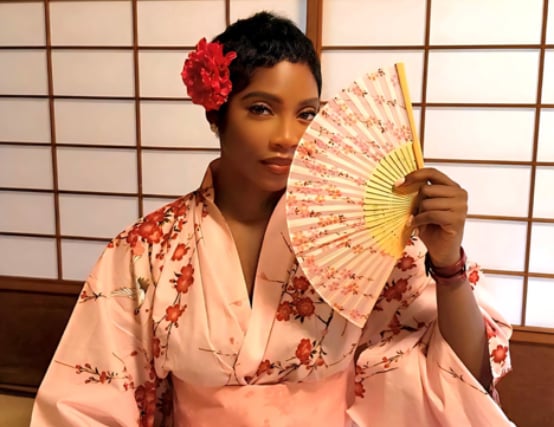Tiwa Savage, a prominent figure in the Nigerian music scene and often hailed as the “Queen of Afrobeats,” recently ignited a social media firestorm with her defiant responses to comments suggesting she retire from music. The controversy began when a user on X (formerly Twitter), identified as Omalicha Nwa, advised Savage to transition from her music career to business ventures, citing her “wonderful and fun youthful age” and suggesting it was time to focus on investments. This unsolicited advice seemed to imply that Savage’s career had reached its peak and that she should gracefully step aside.
Savage, known for her outspoken personality and unwavering confidence, swiftly countered the suggestion. She unequivocally stated that she possessed ample financial resources and investments, effectively dismissing the user’s concerns about her financial future. More importantly, Savage declared that her “youthful age has just begun,” a statement that resonated powerfully with many and challenged the conventional notion of aging, particularly for female artists in the entertainment industry. This declaration was not merely a rebuttal but a bold proclamation of her enduring passion for music and her refusal to be confined by ageist expectations. It became a powerful statement about her continuing relevance and artistic vitality.
Adding fuel to the fire, another user, Kelvin, offered a different, yet equally presumptuous piece of advice, suggesting that Savage should prioritize marriage and retirement. Savage’s curt reply, “Okay, NEXTT,” further emphasized her disinclination to conform to societal pressures surrounding marriage and career choices for women. This succinct response encapsulated her rejection of the traditional narrative that dictates a woman’s path, particularly within a culture where such expectations often hold considerable weight. It solidified her stance as an artist determined to chart her own course, unfettered by societal norms.
The ensuing online debate saw a stark polarization of opinions. Some echoed the initial sentiments, arguing that Savage should consider exploring other avenues given her established career and financial security. These voices often reflected traditional views on age and career longevity, especially for women in the entertainment industry, where youth is often perceived as a more valuable commodity. They interpreted the original comments not as criticisms but as well-intentioned advice, suggesting that Savage could leverage her success into other ventures.
However, a significant portion of the online community rallied behind Savage, applauding her assertive responses and her refusal to be dictated by societal expectations. They interpreted her defiance as a powerful message for women, particularly in the entertainment industry, who often face intense pressure to conform to specific age-related roles and expectations. Savage’s response resonated as a declaration of independence and a challenge to the narrative that dictates women’s career trajectories and personal choices. Her fans celebrated her commitment to her music and her determination to define her own path, regardless of societal pressures.
The incident underscores the prevailing discourse surrounding ageism and sexism within the entertainment industry. Female artists often face greater scrutiny regarding their age and are frequently subjected to pressures to maintain a youthful image. Savage’s experience highlights the double standards prevalent in the industry, where male artists are often not subjected to the same level of scrutiny regarding their age or marital status. Her response served as a potent reminder of the need for greater inclusivity and the dismantling of outdated perceptions about women and aging within the entertainment world. It re-ignited a conversation about the right of female artists to continue pursuing their passions regardless of their age or marital status.














